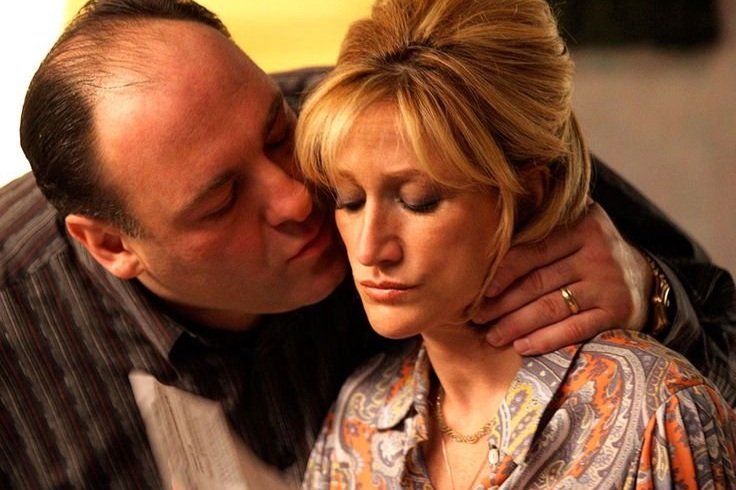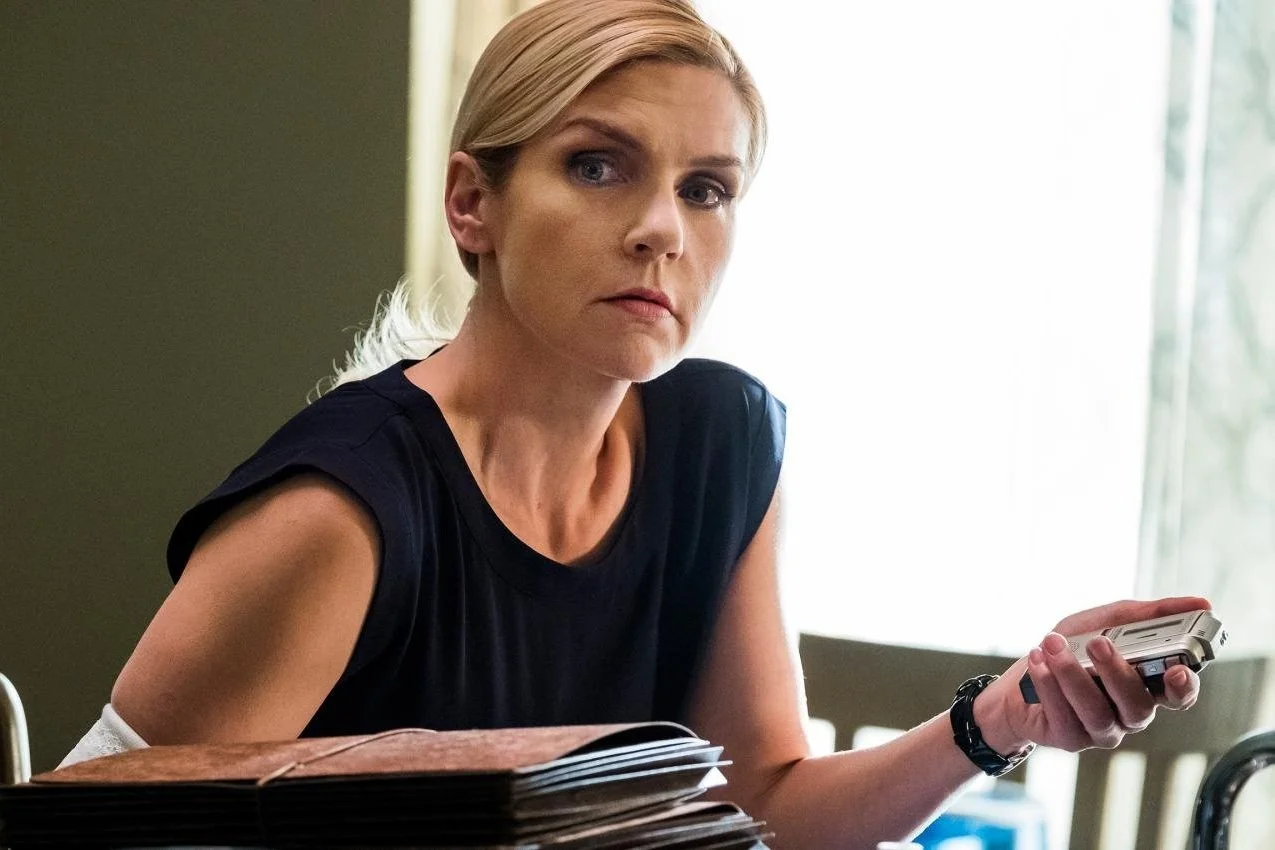The Problem with the “Greatest TV Shows of All-Time”
By Film and Tv Editor Mia Tobin Power
For someone obsessed with TV, I only watched The Sopranos and Breaking Bad relatively recently. While I enjoyed both shows, I didn’t really understand the hype surrounding them. On critics’ and publications’ “greatest TV shows of all-time” lists, these shows alternately occupy the number 1 spot. But I see a problem with these “greatest shows of all-time”: the glamourisation of violence and toxic masculinity, and the marginalisation of women.
From The Sopranos
I never really got the character of Tony Soprano, or more specifically, I never got the way the character was marketed. He’s supposed to be a character of contradictions: he’s a mobster, who kills and has people killed for a living, but he cries about ducks! He goes to therapy! By presenting Tony as having a sensitive side, David Chase and the show’s other writers let the audience off the hook for romanticising this poster boy for toxic masculinity. But it’s not all about Tony. We viewers know logically that we shouldn’t be idolising any of these violent men, but the way in which the show presents their lifestyles encourages us to do so. They have everything: money, drugs, big houses, any woman they could want, and crucially, power and authority. The show presents the lives they acquired through violence as almost aspirational. And it’s exciting to watch – we want Tony and his crew to keep accruing more power, to eliminate their enemies, to win, if there is such a thing. Whenever a show revolves around its depiction of violence exciting the audience, it runs the risk of glamourising it. And when that violence also grants the characters increased social status, money, and power, how could the audience not be at least a little impressed?
But we must remember that there is a fine balance between the realism of a show and its world, and the fact that it is a fictional work created by people.
A show that is male-focused is likely to marginalise women somehow, and The Sopranos fails its female characters (although not as much as Breaking Bad does). Carmela and Adriana are my two favourite characters in the show, but the show doesn’t love them as much as I do, and certainly not as much as it loves Tony. I find them to be fascinating foils: Carmela, far into her life as a mob wife and resentful of her husband and her life, and Adriana, just starting out on a similar path. It’s frustrating that the show didn’t respect these characters enough to engage with the myriad of story possibilities that would come from them meaningfully interacting. But maybe any real relationship between Carmela and Adriana would be too disruptive. The show needs its female characters to fulfil certain roles, to stay in their boxes. The Sopranos is about the men, after all.
By this point, you’re probably thinking, ‘But this is how it would happen in real life.’ For all its surrealism within Tony’s head, The Sopranos is indeed a realist show. But we must remember that there is a fine balance between the realism of a show and its world, and the fact that it is a fictional work created by people. People forced Carmela and Adriana into those boxes. People wrote and stylishly directed gratuitous scenes of violence. And even though the characters’ racism might be realistic, that doesn’t make it any easier to watch. We can’t let a show and its creators get away with anything just because that’s how it might play out in real life. A TV show is a TV show. It’s aware of storytelling conventions and possibilities for innovation. And The Sopranos is an innovative show; along with Oz, it basically invented what we now know as prestige TV. Because it was so unique in its time and still is so influential, I have more time for it than I do for the other “greatest show of all-time”: Breaking Bad.
The vitriol aimed at Skyler is a classic example of men feeling safe to express their misogynistic thoughts and tendencies because they’re directed at a fictional character, not a real woman.
I think that Breaking Bad has even more of an issue with glamourising violence as a path to money, power, and authority, because we see the entire story – we see Walter with (relatively) little, and then we see him with everything. It’s understandable, therefore, that an audience would find him and his journey impressive. And the show wants them to be impressed. Walter White may be the most evil man alive but he somehow finds a way to defeat all these bad guys, so he’s cool, right? Never mind that his success comes at the expense of the very people he claimed all his crimes and violence were for: his family. This is where the show’s glamourisation of violence and glorification of toxic masculinity intersect with its other biggest issue: its treatment of women. Our current Features Editor Chloe wrote a great article for Motley last year about the overwhelmingly negative fan response to the character of Skyler White, wherein she questioned the message that is sent to domestic violence victims when a character clearly depicted as an abuser – Walter – idolised and meme-ified by fans. The vitriol aimed at Skyler is a classic example of men feeling safe to express their misogynistic thoughts and tendencies because they’re directed at a fictional character, not a real woman.
But even though a misinterpretation of a text is the problem of viewers and their (lack of) critical thinking skills, it’s not solely their fault. Breaking Bad’s writers and filmmakers are complicit in the reception of Skyler and the other female characters. Skyler is set up to fail – her purpose is to be an obstacle to Walter’s success, to provide the conflict that the story requires. But it’s not just Skyler. Marie has no real agency or individual storyline to speak of (kleptomania does not count as a real storyline!). Andrea’s only purpose is to further Jesse’s character arc, even in her horrific death. Andrea is an interesting comparison to Adriana in this sense – they both die violently, and the importance of their deaths is the effect it has on their romantic partners. And again, maybe the Nazis would murder Andrea to punish Jesse if this all happened in real life, but it’s not happening in real life.
From Barry
I’m not saying that a show can’t depict violence at all; some shows do so very well, especially Bill Hader and Alec Berg’s Barry. On his podcast The Watch, TV writer and critic Andy Greenwald described Barry as being about ‘the pervasive corrosiveness of violence.’ I think that the use of violence in Barry feels so fresh because its consequences are always shown. The filmmakers’ use of violence is often stylised, like in The Sopranos and Breaking Bad (see the monastery scene in “berkman > block” and the entirety of “ronny/lily”), but it always has a narrative or character purpose. Barry’s violence doesn’t serve to impress us viewers, it serves to horrify us and show us how truly awful and incapable of change he is. When considering the portrayal of violence in Barry, I always think of a storyline from Season 3. The widow and son of one of Barry’s victims plan to get revenge on Barry, but the widow ends up accidentally shooting her son before they even get to Barry. This moment isn’t cool or exciting, it’s shocking and devastating, and representative of the show’s approach to violence more generally.
Along with the show’s sceptical take on the representation of violence on screen comes its scepticism towards its protagonist, and the type of character he is. Barry seems to be your classic white male anti-hero in the vein of Tony and Walter. But unlike those characters, Barry is not at all romanticised. Especially in the final two seasons, you can feel Hader’s disdain for his character through the screen. Even though Hader fully commits to his performance, I wouldn’t say he has respect or even empathy for Barry – he clearly thinks he’s despicable. Maybe that comes from creating and writing the character, but I think that Hader’s performance proves that you don’t have to romanticise a villain to make them interesting. He doesn’t think Barry is worthy of adoration, and neither should the audience.
From Better Call Saul
And I’m not saying that shows shouldn’t be explore crime, either. Look at the Breaking Bad prequel, Better Call Saul, which I think is a more complex exploration of morality than its predecessor, and which constructs in Kim Wexler a female character who is absolutely crucial to the show and has depth, agency, and her own complicated morality. Even though I did enjoy watching The Sopranos and Breaking Bad and I appreciate their radical and influential approaches to TV storytelling, I wouldn’t consider either of them the greatest show of all-time (I would give that honour to The Wire). Nowadays, we have so many more excellent shows to choose from for our lists. There’s Succession, with its compelling and awful characters, whom the show refuses to romanticise; Atlanta, with its formal experimentation and original storytelling that centres Black culture and characters; and Watchmen, with its complex storytelling and characters, which also depicts the consequences of violence, especially racial violence. The Sopranos and Breaking Bad are great, but we need to reckon with their flaws too.




